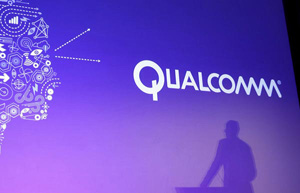In February last year, Kweichow Moutai was fined $40 million, the highest imposed on a single company under the new law so far. Its competitor Wuliangye Yibin was fined $30 million.
Some of the penalties imposed on the foreign companies now under investigation could be higher.
Audi, part of FAW-Volkswagen in China, one of the more high-profile companies being investigated, may be fined 1.8 billion yuan ($292 million), according to an undisclosed company source quoted in The Economic Observer newspaper in China.
Yet the fines and penalties that have been imposed in China remain a mere fraction of those applied in the EU or in the US.
In March this year, the EU fined two EU and four Japanese companies nearly 1 billion euros ($1.34 billion) for fixing the price of components in the car and truck industry.
In the US, the UK and Ireland, company executives can also be sent to jail and often are because the sanctions are criminal as well as civil.
Tetsuya Kumida, a former executive of a US subsidiary of a Japanese automotive products supplier, was sentenced to prison for 12 months and one day last year. Gary Walker, a former executive in the US of another Japanese auto parts company was sentenced to 14 months in jail last year.
Sebastien Evrard, partner of international law firm Jones Day in Hong Kong, says some of the media coverage of the recent probes has failed to pick up that the Chinese antitrust regime is not as severe as in other jurisdictions.
"There are no criminal sanctions in China unless you happen to kill an investigator. I think if you are a business executive in the United States where there is a possibility of going to prison you think about it (anti-trust activity) twice."
The fines imposed have been smaller in China than in the EU because of more relaxed interpretations of what constitutes a company's turnover.
They are imposed at both 1 and 10 percent of turnover in both jurisdictions. However, in the EU this is applied to a company's global sales, whereas in China it is often country turnover or even the sales of a specific product in the country.
"This is why you get this difference in the scale of the fines. The ones in the EU often run to hundreds of millions of euros and we have the recent one that was more than one billion euros," says Zhou at Taylor Wessing.
Three different government agencies are responsible for policing antitrust legislation in China.
|
 |
 |
| Anti-trust team lacks real muscle for enforcement | Qualcomm denies financial links with Chinese expert |
